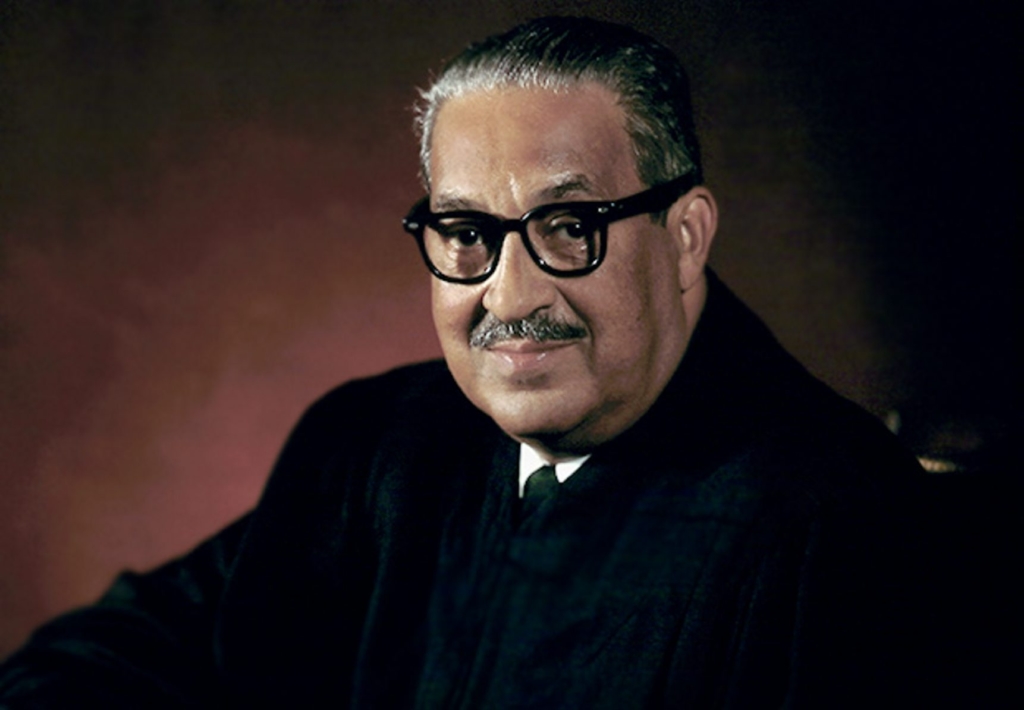
In 1967 Thurgood Marshall made history when he became the first African-American Supreme Court Justice in the U.S. In this position, he served for more than two decades, promoting racial equality and leaving an indelible impression on the country's judicial system. Prior to his judicial service, Marshall made a name for himself as one of the top attorneys in the U.S. Throughout the 1940s and 1950s, he argued a record-breaking 32 cases before the Supreme Court, winning 29 of them. Among his many milestones as a lawyer, Marshall successfully persuaded the Supreme Court to declare segregated public schools unconstitutional in Brown v. Board of Education (1954). Marshall also established a private legal practice in Baltimore before founding the NAACP Legal Defense and Educational Fund. For helping to end the country’s official policy of segregation, Marshall is widely considered to be one of the most influential figures in the civil rights movement. In fact, his stunning legacy earned him the nickname "Mr. Civil Rights." Following his death in 1993, numerous awards and memorials have been dedicated to Marshall, including an airport and multiple libraries and schools across the country.
After his undergraduate years, Marshall wanted to join the Maryland School of Law, but he did not because of the institution’s segregation policy. Instead, Marshall chose to attend the law school at Howard University, a school founded in 1867 for newly freed slaves. When Marshall entered Howard in 1930, the institution had been steadily growing in size and prestige. Although a brilliant student, Marshall came from humble means. His mother had to pawn her wedding and engagement rings to pay for his tuition. It was love at first sight, though. His first week in Howard Law, Marshall said he knew: “This was it. This was what I wanted to do for as long as I lived.” Soon Marshall became a protégé of the well-known dean, Charles Hamilton Houston, who encouraged students to use the law as a means for social transformation. In 1933 Marshall received his Juris Doctor degree, ranked first in his class, graduating magna cum laude.
After Marshall ascended to the bench, he strictly limited his personal appearances but made a notable exception for his alma mater in the fall of 1979. Howard University was installing a new law school dean, Wiley Branton, who was also a long-time friend of Marshall. Addressing the students of his alma mater, Marshall spoke of his experiences fighting for integration in the 1950s and shared some of his memories as a student on campus. In the same address, he endorsed the school’s demand for hard work, one of the main ingredients to his history-making career. "If I give you five cases to read overnight, you better read eight. And when I say eight, you read ten. You go that step further, and you might make it.”
